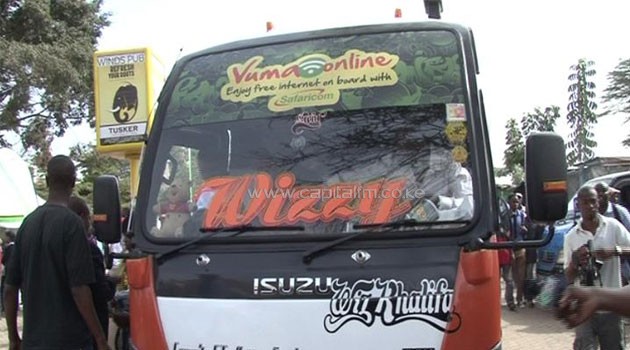
The report reveals that Nairobi has the world’s highest per capita use of informal transport with matatus providing 662 trips per inhabitant per year/FILE
The report reveals that Nairobi has the world’s highest per capita use of informal transport with matatus providing 662 trips per inhabitant per year, three-quarters of public transport trips and 36 percent of traffic volumes.
It states that this is the common trend in most African countries where private carriers dominate, mainly mini-buses and shared taxis with schedules and fares varying with demand, routes being semi-fixed and stopping points unregulated.
It further says that for many urban dwellers in developing countries, the availability of reliable and affordable public transport services can be the difference between being integrated into the economic and social life of a city or not.
The report however states the various transport projects like the Thika Super Highway were set to improve the situation.
“Where governments are unable to construct and subsidize public transport services, travellers often have to pay large, sometimes exorbitant, shares of their incomes to private, often informal, para-transit operators. Setting prices at whatever amount the market will bear, informal operators invariably charge more per kilometre travelled than publicly supported ones,” the report says.
The report notes that one important aspect of accessibility is the affordability of transport modes, adding that affordable transportation means that people – including those with low incomes – can afford access to basic services and activities (healthcare, shopping, school, work and social activities) without budget strain.
“Unaffordable mobility prevents the urban poor from breaking out of the shackles of inter-generational poverty. Furthermore, exorbitant expenditures on public trans port take money away from other essential needs, such as food, health care, education and shelter.”
Other cities in Africa hit by such high costs on travel include Dar es Salaam and Pretoria.
One of the proposed solutions to the transport problem in the region is the ‘Sustainable Transport Solutions in East African Cities’ project (SUSTRAN) which aims to reduce growth in private motorised vehicles, thus reducing traffic congestion and greenhouse gas emissions in the cities of Addis Ababa (Ethiopia), Kampala (Uganda) and Nairobi (Kenya).









































